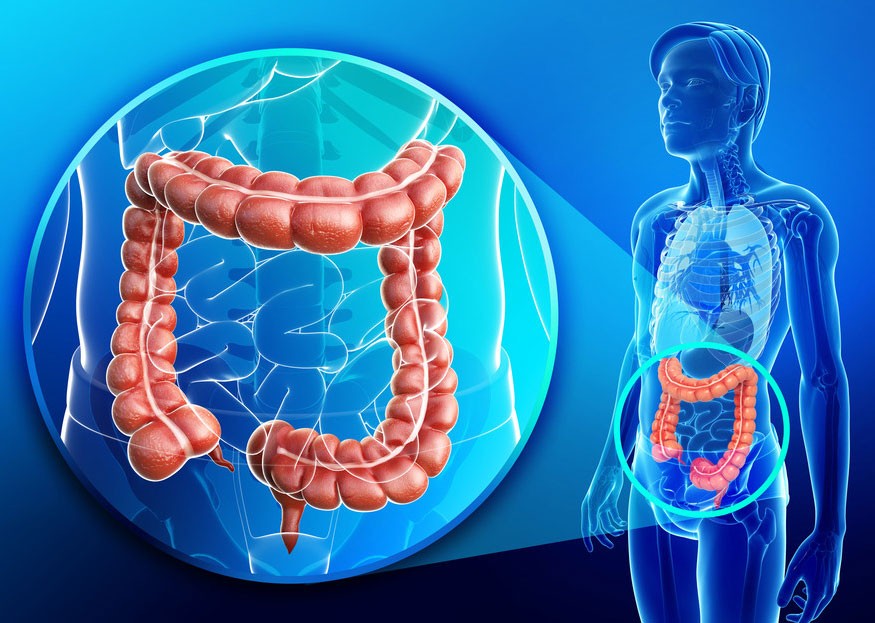A guide to help you better understand the most common gastrointestinal problem affecting people in the ‘senior citizen’ bracket, by Dr Prasanna Shah.
He’s 70, obsessed with ‘motion’, and will try every remedy suggested to him, whether it is 10 glasses of warm water, a tonne of laxatives or even squatting precariously on the commode. We’re talking about the 2015 comedy film Piku starring Deepika Padukone and her hypochondriac father, Big B, who suffers from severe constipation.
And here’s the reason the film resonated with an unusually large audience. Constipation is experienced by most people at some point of time in their lives. It is common in all age groups, but people over age 65 suffer from it the most, making the elderly character in the film all the more relatable to everyone.
What is constipation?
Constipation is a digestive or gastrointestinal disorder in which you experience fewer bowel movement or difficulty in passing stool. In fact, according to healthcare firm Abbott’s Gut Health Survey in 2018, nearly 22 per cent of India’s adult population suffers from constipation. The prevalence of constipation, however, rises significantly with age–some estimates claim over 50% adults over 80 years of age complain of the problem.
Why does it affect the elderly?
There are a number of age-related factors that can cause constipation in older adults. Elderly people are more likely to suffer from constipation due to changes in diet, medication, decreased mobility and intestinal motility. The digestive system propels food through your body—through the mouth, oesophagus, stomach, small intestine, large intestine including the rectum and anus, by a series of muscle contractions. With age, this process sometimes slows down, and this can cause food to move more slowly, particularly through the colon. If you suffer from constipation, you may end up straining to pass stool which is hard and dry or feel that you are not able to completely empty out your bowels.
Symptoms
If you have fewer than three bowel movements in a week, it could be a major indicator of the fact that you have constipation. Other symptoms include bowel movements that feel incomplete, strain or pain when you try to pass stool,
bloated abdomen, fissures, hemorrhoids or swollen tissue around your anus, blood streaks in your stool, loss of appetite
Causes of constipation
Various factors can lead to constipation, such as unhealthy and irregular eating habits, lack of fibre-rich foods in the diet, not visiting the toilet when the pressure arises, leading a sedentary lifestyle, insufficient exercise, not drinking enough water and stress. Sometimes it may be due to any mechanical obstruction or a serious problem such as colon cancer.
Causes of constipation in the elderly
While causes of constipation are more or less the same for people of all ages, when it comes to geriatric patients, sometimes, the use of certain drugs to treat other medical conditions, such as antidepressants, antacids containing aluminum or calcium, antihistamines, diuretics, and anti-Parkinsonism drugs, can be a cause. Apart from this, there is also an often ignored issue: the loss of teeth, which makes it difficult to eat regular food. Older people may end up eating soft processed food with low fibre. Another issue is urinary incontinence, which causes elderly people to consume less fluid in order to avoid frequent urination, which in turn results in hardening of stool. Prolonged bed rest due to a fall, accident or illness leads to lack of not just movement but lack of bowel movement as well.
Lastly, it is ironic, however, the constant anxiety about bowel movement can make elderly patients over dependent on laxatives, which are habit-forming. Over a period of time, the natural mechanisms fail to work without the help of drugs. For instance, repeated use of enemas also can lead to a loss of normal bowel movements. One way to combat it is by bowel training, helping the patient recognise pressure and the urge to use the toilet at the right time.
Four easy things you can do
1. Drink more water
Being dehydrated regularly can make you become constipated. To prevent this, it’s important to drink enough water and stay hydrated.
2. Eat more fiber
Increasing your fiber intake increases the bulk and consistency of bowel movements, making them easier to pass. Consume a mix of the two fibres, insoluble fibers (found in wheat bran, vegetables and whole grains) and soluble fibers (found in oat bran, barley, nuts, seeds, beans, lentils and peas, as well as some fruits and vegetables).
3. Exercise more
The fact is your bowel movement is deeply connected to your body movement. Which means, the more you move, walk, jog or run, the better your bowel movement will be. Regular exercise is the key to avoid constipation.
4. Over-the-counter or prescription laxatives
Make sure you consult your doctor before choosing an effective laxative, whether it is a bulking agent such as concentrated wheat husk or isabgol (psyllium), both fiber-based laxatives used to increase the water content of your stool, or stool softener or a stimulant laxative to stimulate the nerves in your gut to increase bowel movements.




Hі there to all, the contents present at this site
аre really awes᧐me for people knowⅼedge,
welⅼ, keep up the nice work fellows.
Comments are closed.